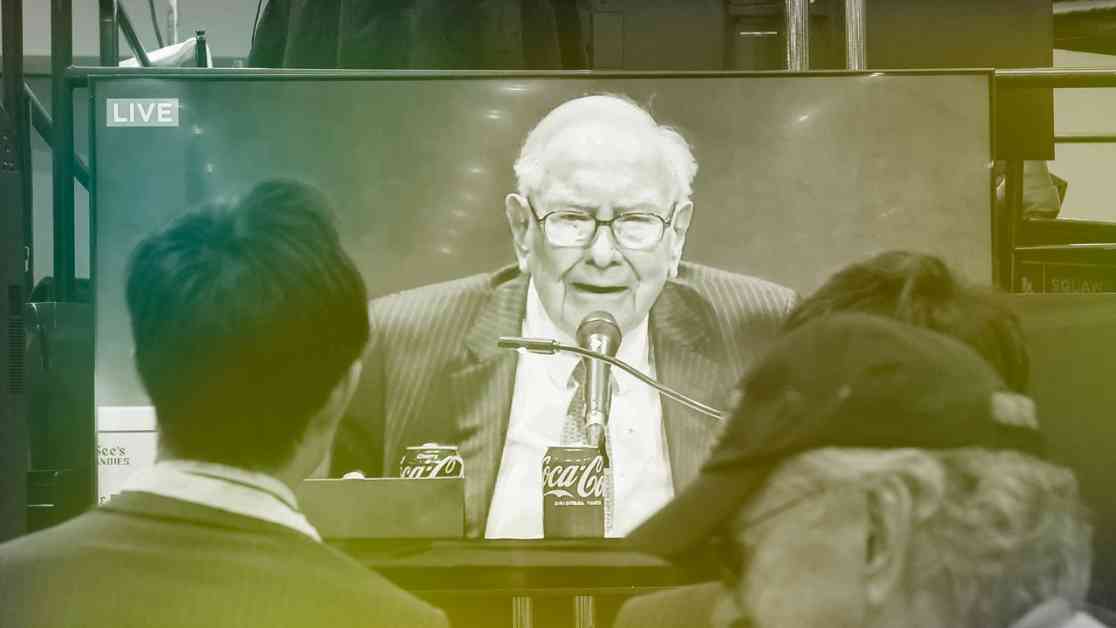Warren Buffett, the ninety-four-year-old C.E.O. of Berkshire Hathaway, made a surprising announcement at the company’s annual meeting in Omaha, Nebraska last weekend. He revealed that he will be stepping down from his role at the end of this year, causing some attendees to shed tears. The crowd, made up mostly of Berkshire Hathaway shareholders, felt emotional as they reflected on the incredible growth of their investments under Buffett’s leadership. If you had invested a mere hundred dollars in Berkshire stock in 1964 before Buffett took charge, by the end of last year, it would have ballooned to approximately $5.5 million.
Buffett, known as the Sage of Omaha, is not just famous for his financial acumen but also for his modest lifestyle, advocacy for higher taxes on the wealthy, and commitment to giving away the majority of his fortune. His impending departure comes at a time when other prominent figures in capitalism are under scrutiny. The Trump family’s involvement in cryptocurrency ventures and Elon Musk’s alleged role in the dismantling of vital services for impoverished children have raised concerns about the ethics of modern capitalism. The contrast between Buffett’s philanthropic efforts and the questionable practices of others highlights the complexities of wealth and power in today’s society.
Thorstein Veblen, a social theorist from the late 19th century, criticized the pecuniary class, which includes individuals who profit from owning capital without actively participating in production. Buffett, with his strategic investments and long-term approach, falls into this category despite his reputation for integrity and generosity. On the other hand, Musk, while hailed as an industrial entrepreneur, also benefits from financial markets and government contracts, blurring the lines between productive and parasitic capitalism. Veblen’s insights into the moral decay of pecuniary capitalism remain relevant today, as evidenced by the questionable business practices of certain individuals and companies.
Buffett’s commitment to charitable giving and fair taxation stands in stark contrast to the self-serving actions of some billionaires. While Buffett advocates for a more equitable tax system and donates billions to philanthropic causes, others exploit loopholes to preserve their wealth for future generations. The impact of these differing approaches is felt not only in financial markets but also in broader social issues. As Buffett reflects on his own privilege and the role of luck in his success, he urges others to use their wealth for the greater good. In a world where wealth and power often lead to exploitation and inequality, Buffett’s example serves as a reminder of the potential for positive change through responsible stewardship of resources and opportunities.












